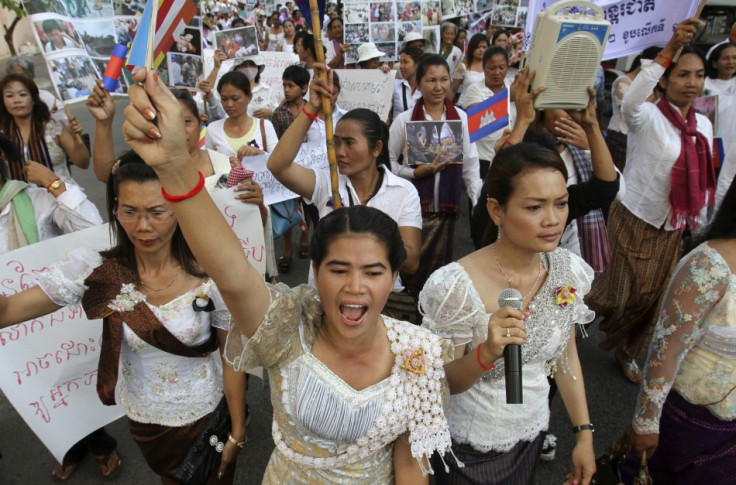Mini skirts and other 'inappropriate' clothing may soon be banned in Cambodia
Cambodian women took to social media to protest the pending law by posting photos of themselves wearing "inappropriate" clothing with the hashtag #mybodymychoice..
Cambodia is seeking to sign into law a legislation that would ban its citizens from wearing inappropriate clothing. The government recently drafted this legislation to regulate men's and women's clothing in a move to keep "public order."
The draft is under Article 36 or the Law on Public Order which, if approved, would ban women from wearing clothing that is" too short" or " too see-through." Likewise, men are not exempt from this law as it would also prohibit men from going out in public without a shirt. It also aims to moderate how much noise and ruckus people get into in public. The law is set to take effect next year.
Cambodian women have since taken to social media to express their dissent against the pending legislation by posting photos of themselves wearing short and sheer clothing as well as skimpy swimwear.
While Cambodian interior ministry secretary Ouk Kimlek says,"it's good to wear something no shorter than the middle of the thighs, It is not entirely a matter of public order, it's a matter of tradition and custom," Kimlek said.
Supporters of the legislation also strongly emphasise that these measures are deemed necessary to maintain social order and "preserve national dignity." Although the Public Order Law has not yet been finalised, it may be subject to some changes but will still reflect highlighted concerns aimed to uphold tradition and modesty.
Kimlek clarifies that the government has no intention to curb people's freedoms.
While the draft fails to provide any specific details on what constitutes "too short" or inappropriate, Article 36 does mention that the enforcement does not apply for "the tourism sector, arts, sports, tradition, or areas that have prior permission from a competent authority."
Despite these reassurances in support of the conservative bill, the backlash it has received from Cambodian women continue to grow through social media posts of women wearing what may be considered as inappropriate clothes under Article 36 alongside the hashtag #mybodymychoice.
A recent High School graduate, Tan Molika has spearheaded an online petition calling for the draft bill to be withdrawn. As of today, it has gained more than 19k signatures.
Chak Sopheap, executive director of the Cambodian Centre for Human Rights voiced her concerns that the new law is an indication of a growing movement to stifle women's freedoms in Cambodia.
"In recent months, we've seen the policing of women's bodies and clothing from the highest levels of government, belittling women's rights to bodily autonomy and self-expression, and placing blame on women for violence committed against them," she said.
Imposing restrictions on items of clothing undermines individual autonomy of citizens & interferes with personal liberty. Our society sets rule on women & allows judgement of women, in the name of women, by men. This is only one element of draft law itself #SayNoToPublicOrderLaw pic.twitter.com/csoMLcFfNX
— Sopheap Chak (@sopheapfocus) August 4, 2020
The country's social norms are based on the legacy of the Khmer code of conduct called the Chbab Srey, which was taught in Cambodian schools until 2007. The Chbab Srey teaches women how to speak softly, obey their husbands and maintain boundaries that separate home life to the outside world with a path that leads them to living a virtuous life.

© Copyright IBTimes 2025. All rights reserved.





















